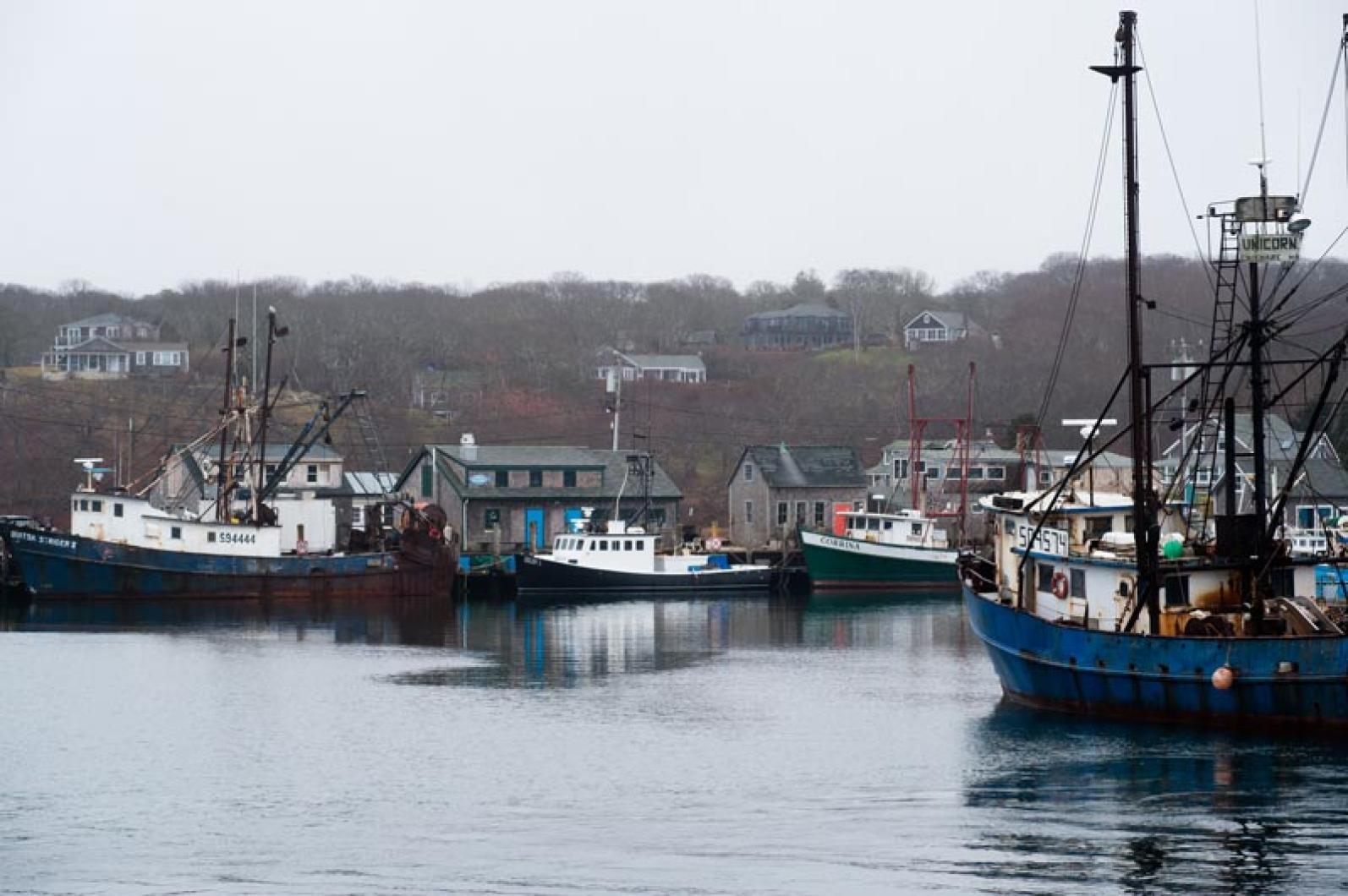The New England Fishery Management Council delayed a decision yesterday on drastic cuts to the ailing groundfishery, amid impassioned testimony from fishermen who said the deep cuts would spell the end of their livelihood.
“[The fishery] has been declared a disaster . . . this will make it a reality,” said Frank Mirarchi, a Scituate draggerman. “This means the boats will fail and the families will fail. This will be the end of an era.” Mr. Mirarchi was referring to a proposal on the table to cut the catch allotments for cod and yellowtail flounder by as much as 80 per cent. The proposal follows the formal declaration of the groundfishery as a federal disaster by the acting U.S. Secretary of Commerce in September. The declaration is expected to lead to relief funding from the federal government in the coming year for the fishery.
Stock assessments for New England groundfish are at an all-time low, and fishery managers say drastic action is needed.
But during a daylong meeting of the council Thursday in Wakefield, the latest assessments came under blunt questioning by fishermen.
The meeting was broadcast live on the web.
“I have tried desperately to put faith in the science. I don’t have the faith now. I wish I did,” said Christopher Brown, president of the Rhode Island Commercial Fishermen’s Association. “The last straw was a week ago when Doug Butterworth, [who was hired by the fishing industry to represent it and dispute the recent stock assessments] was bullied. He was harassed and distracted . . . it was beyond contempt.”
Dr. William (Bill) Karp, science and research director of the Northeast Fisheries Science Center in Woods Hole, apologized for the treatment of Mr. Butterworth. “It is not acceptable to me as it is not acceptable to you. The lack of respect, the lack of respect. It is something that I will continue to follow up,” Mr. Karp said.
Nevertheless the Woods Hole scientist said he strongly backs the position that yellowtail flounder are in trouble.
“It is true for these stocks and other stocks,” Mr. Karp said. “We have to look for a better way,” he said, calling for some kind of method to integrate the assessments of fishermen who are out on the water every day with the scientific assessments of stocks, taken through samplings at sea and computer modeling.
“There has been a lot of public comment from the heart,” concluded John Bullard, Northeast Regional Administrator for the National Oceanic Atmospheric Administration. “We have stocks of both fish and fishermen at such low levels; the effort to protect both is so low that these decisions become very difficult. We ask ourselves if we have made progress. We have to rebuild stocks. We can’t keep doing this, bouncing along the bottom.”
The council was scheduled to review the complicated details of what is called Framework 48, which takes into account the dramatic drop in cod and yellowtail flounder stocks, now at historic lows. Instead a motion was passed to remove any specific cuts from the decision making for now. The council will meet again in late January to resume the deliberations, described on all sides as difficult.
Climate change and warming waters are now also a central topic in the discussion around stock assessments and
the health of the fishery. “I am very troubled by the impact . . . [climate change] is already making our job more difficult,” Mr. Bullard said. “The fishermen are excellent observers. You are all out there all the time observing. You see this. You see temperature changes. You see movement of fish better than I do. This is causing changes that will create winning and some losing situations.” The council meets again from Jan. 29 to Jan. 31 in Portsmouth, N.H.







Comments
Comment policy »